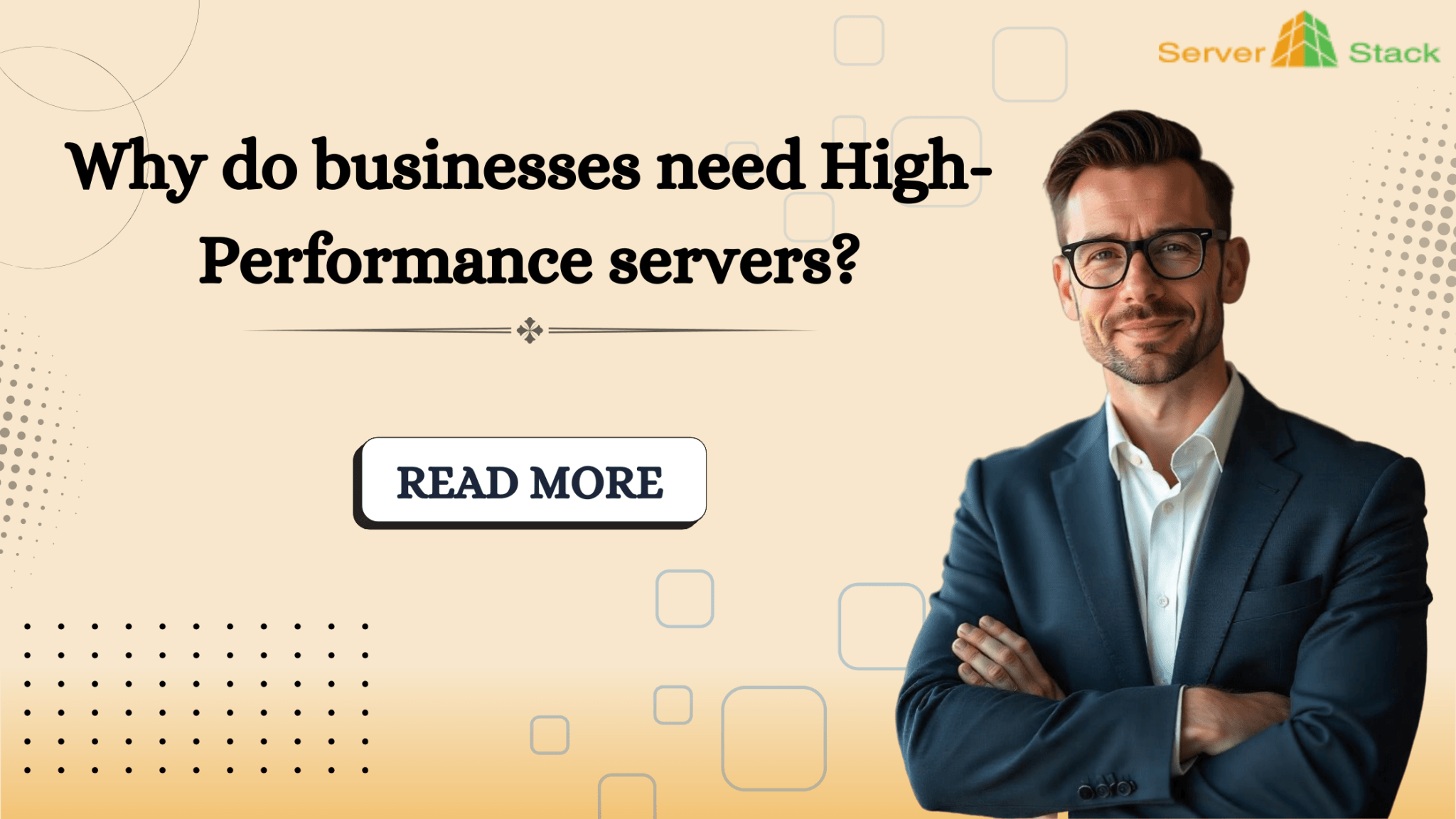Table of Contents
Introduction
In today’s fast-paced digital world, businesses rely on high-performance servers to maintain seamless operations, ensure security, and handle increasing workloads. Whether running a startup or a large enterprise, investing in a high-performance server can drastically improve efficiency and customer satisfaction. But what makes these servers essential for businesses? Let’s dive in!
What Are High-Performance Servers?
High-performance servers are advanced computing systems that handle large-scale processing, high-speed data transfers, and intensive workloads. They differ from standard servers in terms of:
- Processing Power – Equipped with multi-core processors for high-speed computing.
- Memory (RAM) – Large amounts of RAM ensure smooth multitasking.
- Storage Solutions – High-speed SSDs and hybrid storage options enhance data retrieval speeds.
- Network Capacity – Advanced network connectivity supports large volumes of traffic.

Why Businesses Need High-Performance Servers?
Investing in a high-performance server can offer numerous advantages, including:
Contact us
- Faster Processing Speeds – Enables quick execution of applications and services.
- Enhanced Security – Protects critical business data with advanced encryption and firewalls.
- Improved Scalability – Supports business growth by handling increasing demands efficiently.
- High Uptime and Reliability – Ensures continuous operation with minimal downtime.
How High-Performance Servers Improve Business Efficiency?
Efficiency is key to business success, and high-performance servers contribute by:
- Reducing processing time for applications
- Enhancing workflow automation
- Supporting simultaneous user access without slowdowns
- Improving server response times for customer interactions
Security Benefits of High-Performance Servers
Cybersecurity threats are on the rise, making high-performance servers an essential safeguard. Key security benefits include:
- Advanced Firewalls – Blocks unauthorised access and cyber threats.
- Data Encryption – This ensures that sensitive information remains protected.
- Regular Backups – Minimizes data loss risks.
- Intrusion Detection Systems (IDS) – Identifies and mitigates attacks proactively.

Key Features of High-Performance Servers
When selecting a high-performance server, consider these critical features:
- Processor (CPU): Multi-core processors like Intel Xeon or AMD EPYC for high-speed performance.
- Memory (RAM): At least 32GB RAM, with expandability for future needs.
- Storage: NVMe SSDs for ultra-fast read/write speeds.
- Network Speed: 10 Gbps or higher for smooth data transmission.
Scalability: Supporting Business Growth
Scalability is crucial for businesses expanding their digital presence. High-performance servers enable:
- Seamless Growth – Adapts to increasing traffic and data loads.
- Load Balancing – Distributes network traffic to prevent overloads.
- Virtualization Support – Allows multiple applications to run efficiently.
High-Performance Physical Servers vs. Cloud Servers
Difference between High-Performance Physical Servers vs. Cloud Servers are as follows:-
High-performance physical servers provide speed, control, and security for businesses handling sensitive data but have high initial costs, in-house maintenance, and limited scalability.
On the other Hand, Cloud servers offer flexibility, scalability, and cost-efficiency through a pay-as-you-go model. However, they require internet connectivity, offer limited control, and may incur long-term recurring expenses.
Where to Buy Server Hardware?
If you’re looking to buy server hardware, it’s important to choose a reliable provider that offers high-quality components, excellent support, and scalability options. You can purchase servers from trusted online marketplaces and Physical server providers like Serverstack. Always compare specifications and customer reviews before making a decision.
Best Industries That Require High-Performance Servers
High-performance servers are widely used in industries such as:
- Finance & Banking – Secure transactions and data encryption
- Healthcare – Fast processing of medical records
- E-commerce – Handling online traffic surges
- Gaming & Streaming – High-speed content delivery
Choosing the Best High-Performance Server
When selecting a server, consider the following:
- Business Size & Needs – Choose a server that matches your workload.
- Budget – Find a balance between performance standards and cost.
- Technical Support – Ensure vendor support for maintenance and upgrades.
- Future Scalability – Opt for a server that can grow with your business.
What is the high-performance server price in India?
The server price in India varies depending on the specifications, brand, and features. High-performance servers can range from ₹80,000 to several lakhs, depending on processing power, storage capacity, and security features. Choosing the right server depends on your business needs and workload requirements.
Conclusion
High-performance servers are essential for businesses that prioritize speed, security, scalability, and reliability. Whether you’re handling financial transactions, e-commerce operations, or large-scale data processing, investing in the right server can drive business growth and efficiency. Serverstack offers cutting-edge server solutions to help businesses achieve optimal performance and reliability.
Frequently Asked Questions
Q1. What is a high-performance server used for?
High-performance servers are advanced computing systems that handle large-scale processing, high-speed data transfers, and intensive workloads.
Q2. What factors should I consider when buying a high-performance server?
Look for CPU speed, RAM, storage type, network capacity, and security features.
Q3. What industries benefit most from high-performance servers?
The finance, healthcare, e-commerce, gaming, and streaming industries require them for efficiency.
Q4. Where to Buy Server Hardware?
You can purchase servers from trusted online marketplaces and Physical server providers like Serverstack







